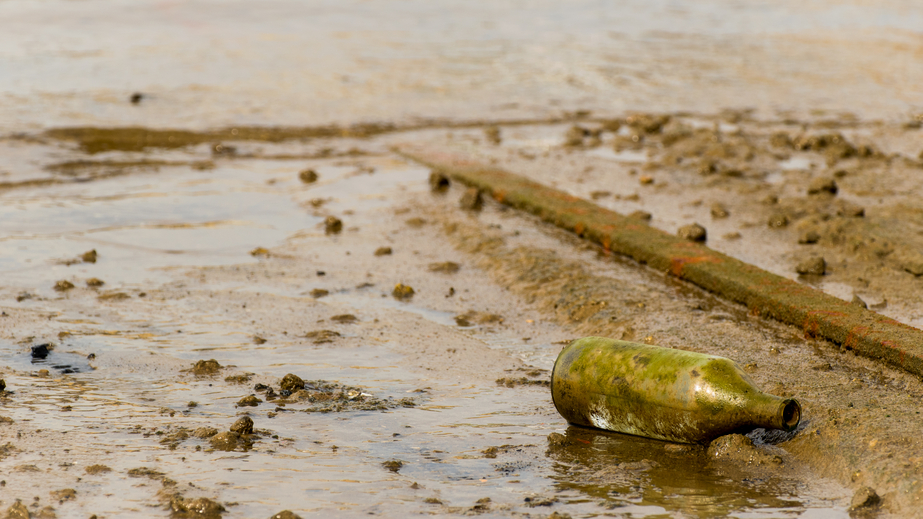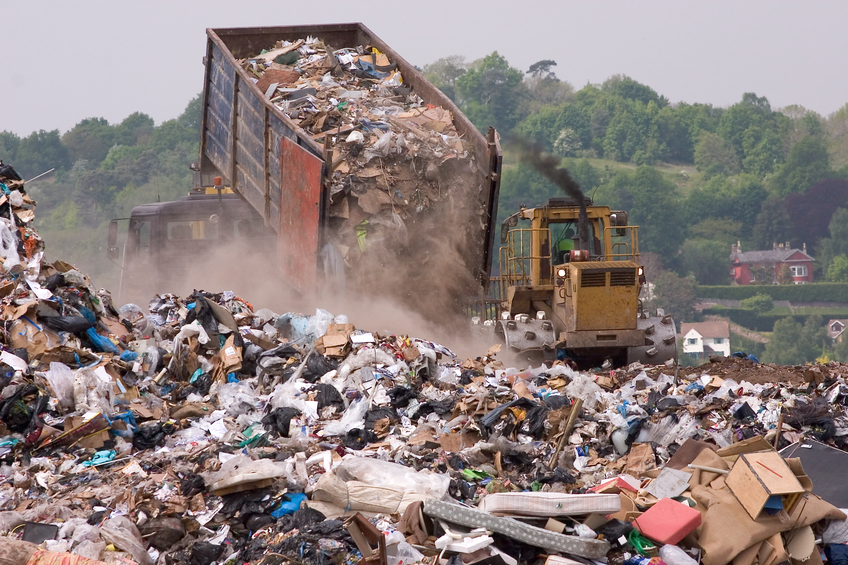North Dakota Environmental and Ethics 30 PDH Discount Package 1
Courses in this Package
Landfill Gas Collection and Treatment Systems (C11-001)
Solid Waste Disposal Facility - Operating Criteria (C04-001)
In-Situ Air Sparging (C14-001)
Ethics, Professionalism and Disciplinary Actions: Case Studies (LE1-003)

This online engineering PDH course establishes criteria and guidance for landfill gas (LFG) collection and treatment systems. In addition, this course provides information about the design of systems used to monitor, collect, transport, and treat gas from municipal, industrial, and hazardous waste landfills.
LFG is produced by the biological decomposition of general solid waste refuse and other organic materials disposed of in the landfill. Its production typically begins within a year of waste placement, and may continue up to 50 years after landfill closure, with peak LFG production for any given disposal cell occurring within the first or second year of waste placement. The total LFG production rate increases as more waste is added to the landfill.
This course aims to provide information specifically relating to landfill gas collection systems in order to help landfill employees understand the available equipment and how and when to use them.
This 11 PDH online course is applicable to civil, environmental, geotechnical engineers, construction managers and landfill operators seeking an introduction to the operation and maintenance of landfill gas collection systems.
This PE continuing education course is intended to provide you with the following specific knowledge and skills:
- Understanding the purpose of landfill gas collection systems
- Learning how to design landfill gas collection systems
- Learning how to design landfill gas treatment systems
- Familiarizing with the operation and maintenance of landfill gas collection systems
- Familiarizing with the safety procedures and regulations of landfill gas collection systems
Upon successful completion of the quiz, print your Certificate of Completion instantly. (Note: if you are paying by check or money order, you will be able to print it after we receive your payment.) For your convenience, we will also email it to you. Please note that you can log in to your account at any time to access and print your Certificate of Completion.

This online engineering PDH course contains a series of operating requirements pertaining to routine operation, management and environmental monitoring at municipal solid waste landfill (MSWLF) units. The operating requirements pertain to new MSWLF units, existing MSWLF units, and lateral expansions of existing MSWLF units.
EPA has developed these operating requirements to assist owners/operators in achieving compliance with the criteria and ensure the safe daily operation and management at MSWLF units. These operating requirements apply to owners and/or operators of MSWLF units operating on or after October 9, 1993.
This 4 PDH online course is applicable to owners and/or operators of MSWLF units, as well as engineers, designers, managers, construction workers and any other personnel involved with the operation and maintenance of municipal solid waste landfills.
This PE continuing education course is intended to provide you with the following specific knowledge and skills:
- Exclusion of hazardous waste
- Cover material application
- Disease vector control
- Explosive gases control
- Air monitoring
- Facility access
- Run-on/run-off control systems
- Surface water requirements
- Liquid restrictions
- Recordkeeping requirements
In this professional engineering CEU course, you need to review Chapter 3, "Operating Criteria" of the EPA "Solid Waste Disposal Facility" Technical Manual.
Upon successful completion of the quiz, print your Certificate of Completion instantly. (Note: if you are paying by check or money order, you will be able to print it after we receive your payment.) For your convenience, we will also email it to you. Please note that you can log in to your account at any time to access and print your Certificate of Completion.

This online engineering PDH course provides guidance for evaluation of the feasibility of in-situ air sparging (IAS) for remediation of contaminated groundwater and soil. This course also describes design and operational considerations for IAS systems.
In-Situ Air Sparging (IAS) is a rapidly emerging remediation technology for treating contaminants in saturated zone soils and groundwater. It is a relatively easy technology to implement and it is well known to regulatory agencies. IAS involves the injection of air, pure oxygen, or other gases below the water table which may result in the removal of contaminants through volatilization or bioremediation. In a less common application, IAS can also be used to immobilize contaminants through chemical changes such as precipitation.
This 14 PDH online course is intended for civil and environmental engineers as well as other technical professionals interested in learning about the design, operation, and feasibility of IAS systems.
This PE continuing education course is intended to provide you with the following specific knowledge and skills:
- Learning about the background of IAS
- Familiarizing with the underlying physical process and technology used in IAS
- Understanding the basics of feasibility evaluations and site characterization
- Gaining insight into pilot testing guidance and strategies
- Familiarizing with design considerations for IAS
- Learning about operation and maintenance requirements for IAS systems
- Familiarizing with IAS system shutdown strategies
- Gaining insight into administrative issues such as regulations, patents, and safety
Upon successful completion of the quiz, print your Certificate of Completion instantly. (Note: if you are paying by check or money order, you will be able to print it after we receive your payment.) For your convenience, we will also email it to you. Please note that you can log in to your account at any time to access and print your Certificate of Completion.

In this online engineering PDH course, ten case studies of actual enforcement actions taken by a state licensing board are presented. The cases have been selected to be representative of situations likely to exist in many states. Board procedures and the types of enforcement actions available are shown by a variety of cases ranging from a geotechnical engineer who produced (within one hour and without visiting the site) a soils report, to an engineer who was unable to document his PDH's during a board audit. The importance of being very careful about when to put "P.E." after one's name on a document also will become apparent.
Codes of ethics for engineers typically describe standards for professional behavior. The enforcement of those ethical standards that are inscribed into law lies with the licensing boards of state governments.
This 1 PDH online course is intended primarily for all engineers seeking to deepen their understanding of what constitutes ethical and professional engineering behavior and how such behavior is enforced by the licensing board.
This PE continuing education course is intended to provide you with the following specific knowledge and skills:
-
Familiarizing with the format of enforcement decrees issued by a state licensing board
-
Knowing the ten different types of licensing violations
-
Understanding the investigative process of the board, as it attempts to determine the validity of complaints brought before it
-
Learning about the types of enforcement actions available to the board
In this professional engineering CEU course, you need to review the course document titled, "Ethics, Professionalism and Disciplinary Actions: Case Studies".
Upon successful completion of the quiz, print your Certificate of Completion instantly. (Note: if you are paying by check or money order, you will be able to print it after we receive your payment.) For your convenience, we will also email it to you. Please note that you can log in to your account at any time to access and print your Certificate of Completion.